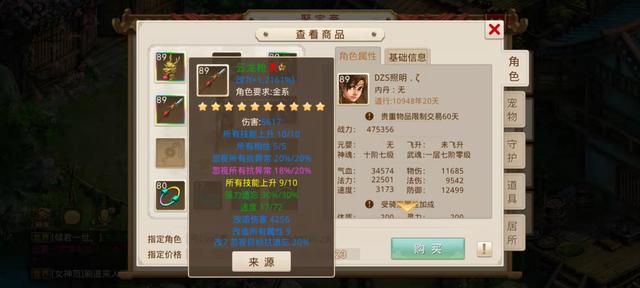原创 David Childree | Harbinger传言公社

[David Childree]
作者简介:
超15年美辩执教经历,培养出8名全美冠军和12名全美排名第一辩手
前言
今年的比赛季已经开始了,也是时候来探讨练习赛一直以来被低估的重要性了。
很多学生并没有太多机会做线上练习,他们也许是没法协调好搭档和对手的时间,亦或者根本不了解练习赛的重要价值。因此,那些真正看到了练习赛重要性的学生,相比其他辩手就会有更大的优势。
今天,我想和大家分享练习赛的几个重要价值。
NO1. 模拟真实赛场 Real Tournament Simulation
First, debating in THE REAL ROUND SETTING challenges you in ways that other preparation cannot and does not. When hearing a new idea for the first time, within the time limits of debate speeches and crossfires, with opponents, sometimes you are forced to think on your feet and immediately come up with something to say against that idea. It is in these moments, that many GREAT ideas are born.
CLASH and SURPRISE can give birth to GREAT ideas that otherwise would not have popped into your mind. These ideas are often NOT ideas that your research found initially but can be made even GREATER if you then research them and develop and prepare them. The BIRTH of these great (and sometimes creative and unusual) ideas often ONLY happens in the real experience of a round. Many of my best ideas on various debate topics have been born in the heat of the moment, in some unexpected situation, in a practice debate round.
Rounds will force you to manage and budget your time more wisely, and help you learn how to do that better in the process. When you make mistakes about how you divided your time in speeches, in prep time, and in crossfires, you learn from those mistakes. The more practice rounds you have, the more mistakes you make, and lessons you learn, in PRACTICE rounds, instead of in TOURNAMENT rounds.
MISTAKES cost you NOTHING in practice rounds, but in tournaments, they could mean you lose the round, or don’t break. That way the TOURNAMENT ROUNDS happen AFTER you have learned from all of those practice rounds’ mistakes and experiences. (That being said, no matter what you do, you will always learn a LOT from tournament rounds, judges, and experiences, so, I HIGHLY RECOMMEND that you go to EVERY tournament that you GET A CHANCE to compete in.)
No.2 改进演讲稿 Improve Speech
Use an additional color on your flow to improve your rebuttal, summary, and final focus, and regive those speeches, practicing time management, and becoming familiar with how to say those arguments. Add evidence and weighing, group ideas better, reorganize your thoughts, and include things you forgot to mention but wish you had. Record your speeches, and relisten to them to see if you are satisfied. Regive them multiple times for maximum improvement.
a. REBUTTAL. I suggest 15-30 minutes spent researching and improving the rebuttal that happened during the round. Then regive the rebuttal out loud a few times until it feels natural and automatic, and your time management and your delivery are good.
b. SUMMARY AND FINAL FOCUS. I suggest an additional 10-15 minutes spent on improving the summary and final. Did you use weighing? Did you group arguments together? Did all of your arguments fall into clear themes, easy for the judge to understand and follow? Did you highlight your strengths and your opponents’ weaknesses? Were the same issues in both speeches? How could you improve? Add improvements, and then regive the summary and final focus out loud a few times until it feels natural and automatic, and your time management and your delivery are good.
c. CROSSFIRE QUESTIONS. Look at your flow and think more about what would have been the best crossfire questions to ask (A) after cases were read, (B) after rebuttals, and (C) after summaries.
The best part about this is that those preparations can be reused again in future debate rounds because the prep and thought and strategy on those arguments is already done!
No.3 赛后复盘 Review after Rounds
Third, more PLANNING AND RESEARCH suggestions for improvement directly AFTER a practice round:
1. Ask the judge/coach extra questions about your strengths and weaknesses in the round, about how to respond better to specific challenges, difficult arguments, strategies the opponents used, or other things we're unsure of.
2. Talk with your partner about what each of you did well, and what each of you should work on and improve. Make a list of these, and make those improvements happen, with extra practice, extra research, etc.
3. Look up evidence the opponents used that you don’t already have.
a. Find flaws in it, to attack it better in the future.
b. Find what’s good about it, so you can use it in the future if it is not flawed.
4. Look up other new evidence that would have been nice to have in that round, to make your rebuttal responses better.
These efforts will help you in huge ways. This approach will boost your abilities to have smoother, better rebuttals and speeches, to have better crossfires, and to manage your speaking time. It will help you learn more evidence, find more flaws in arguments, and LEARN MORE AND BE CAPABLE OF MORE.
No.4 搭档磨合 Partnership
Fourth, PARTNERSHIPS. Debate partners work together and work towards the same goals, and extra practice rounds help you GET TO KNOW YOUR PARTNER BETTER and help you and your partner DEVELOP BETTER TEAMWORK together.
Your debate partner is your DANCE PARTNER. You move together, you support each other, when one of you makes a mistake the other one compensates to correct it, and it’s important that you understand how each other thinks. In a tournament, you DEPEND ON your partner and they depend on you.
BE A TEAM, and INVEST TIME in BECOMING a better team. Teammates that spend more time together and practice more together, will DEBATE BETTER TOGETHER!
总结 Conclusion
最后,我想说的是额外的练习赛是Harbinger传言提供给学员的宝贵提升机会,辩手们也很难在其他地方获得如此系统性的模拟训练。除了协调对阵双方的时间之外,我们还会安排教练或资深裁判执裁,并在赛后为参与辩手提供相应的反馈和建议。
在辩论的世界里,我们要做的就是不断提升自身实力,包括基础知识、语言表达能力,以及对辩题的理解。
因此,我鼓励大家都能好好利用练习赛的机会来发现并改正自身存在的问题,进一步提升辩论能力。同时,也希望大家能在这个过程中感受到辩论的乐趣和魅力!
传言公开课 Harbinger Lecture
传言公开课Harbinger Lecture是继“传言开讲Harbinger Talk”之后推出的又一系列活动。
每周,我们都会邀请一位优秀教练在这里分享辩论学习的方法和经验,为大家在课堂之外提供一些额外的帮助。
传言公开课的内容以实用技巧和日常学习方法为主。大家除了可以了解到更多在备赛和比赛中可以运用到的实战辩论技巧外,还能学会教练们独家分享的日常积累方法。备赛和积累双管齐下,让学习事半功倍。
,




